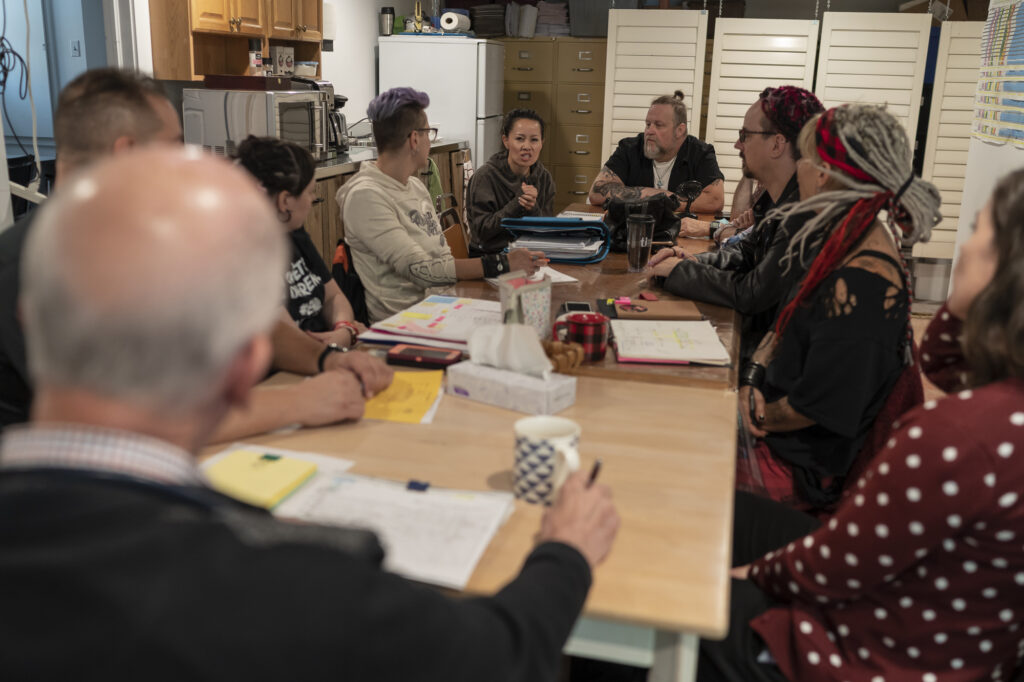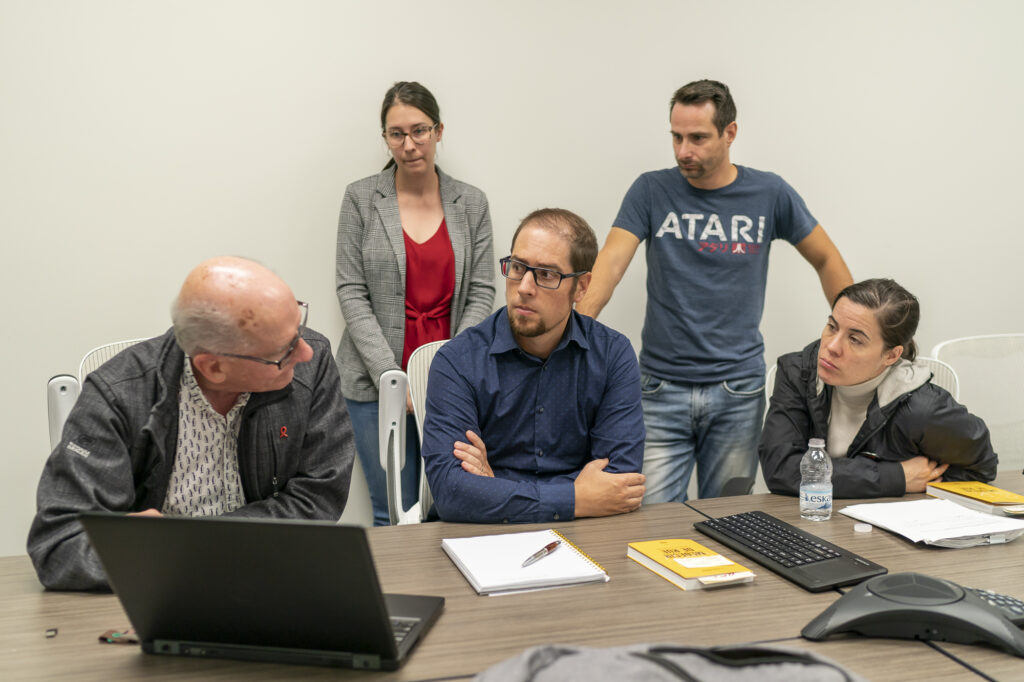Montreal is an exhilarating and vibrant city located on an island in the St. Lawrence River. The city and the greater metropolitan region have 4 million inhabitants, with residents originating from more than 120 different nationalities. Since its foundation in 1642, Montreal has been a melting pot of cultures and is the second largest French-speaking city in the world after Paris.
Since the late 1980s, a small number of organisations across the city have been working with people who use drugs. Despite more than three decades of offering targeted services, there continues to be a significant number of unmet needs within these highly marginalised communities, especially a lack of appropriate health services.
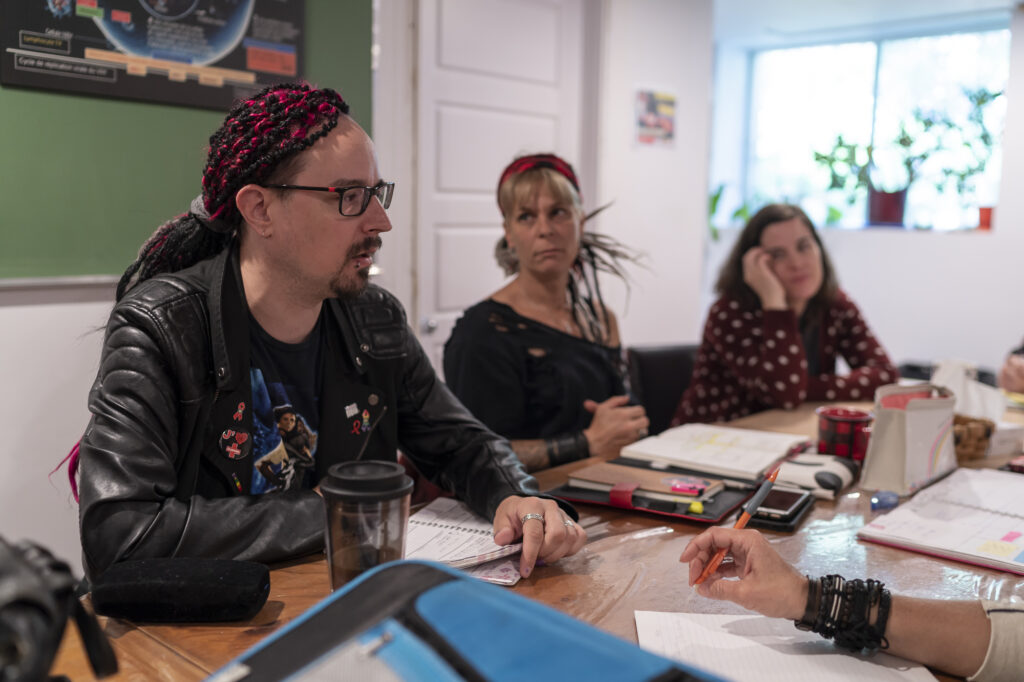

Dr Jean Robert
When Dr. Jean Robert greets a patient and ushers them into his office for an appointment, it is hard to tell who is more excited, him or the patient. With everyone that enters his cosy office, the pair naturally catch up for some time before the conversation turns to the matter of the appointment.
When Dr. Jean Robert listens to his patients, he listens with his entire self. His way of engaging people ensures that once they enter the office, they know they are the centre of his attention. They know they will be listened to in a completely non-judgmental way, and most of all, they feel important and valued.
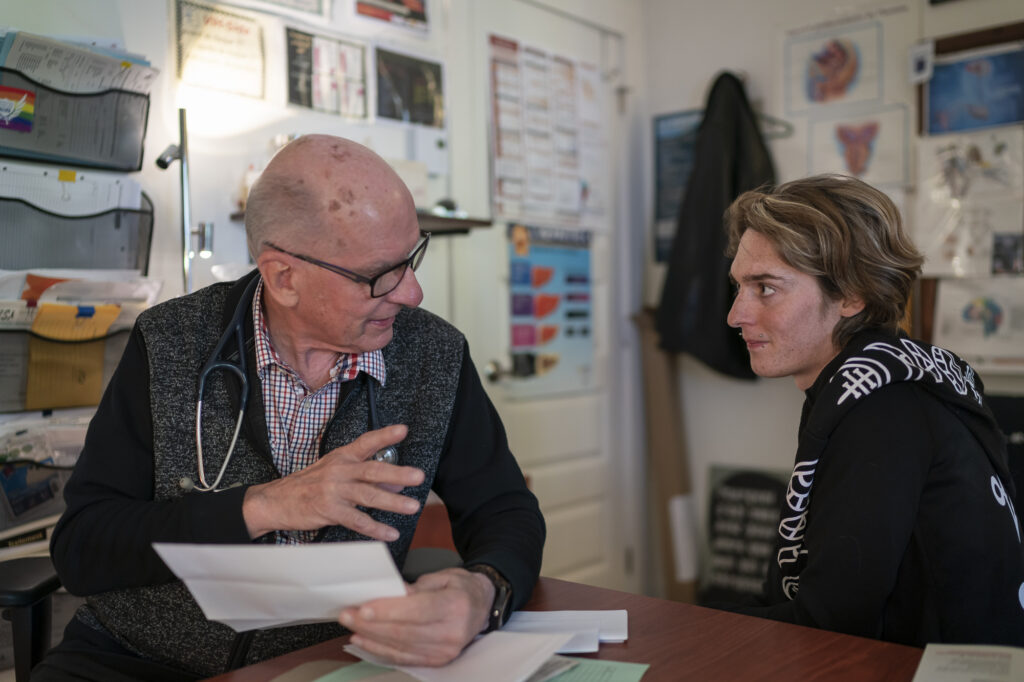
That’s the essence of what community health is. We take a group of individuals who have hepatitis C, have HIV, are drug consumers, are on the streets, but each individual is different. At the end the day, we don’t deal with a group, but with a single person at a time because it their suffering, their blood tests, their urine tests, their well-being, their health.
Dr. Jean Robert, Centre sida Amitié

Robert’s story
In 2001, after three years of living on the streets, Robert found himself in Saint-Jérôme and bumped into a CSA outreach worker who offered him a few apples. That small gesture was enough for Robert to feel valued. Soon after this incident, a relationship with Dr. Jean Robert and other staff at the CSA blossomed.
What attracted me to the CSA is that I did not feel judged at all. I received a lot of love. I trust Dr. Robert and a few people here, but not many people apart from that. I always struggled to deeply connect with people.
Robert had previously been told he had contracted hepatitis C, but he avoided seeking treatment. With Dr. Jean Robert’s support, Robert undertook two rounds of interferon treatment in an attempt to treat his hepatitis C. Both times were unsuccessful, and unfortunately the process was incredibly taxing on his body. Robert almost gave up hope that he would have his hepatitis C cured. However, in 2012, Robert was one of the first patients at the CSA chosen to trial the new direct-acting antiviral medication that had entered the market. While the medication has a 95% cure rate for hepatitis C, Robert was still unsure whether it would work for him.
His treatment involved three months of daily medication and weekly visits to the clinic, and he experienced little to no side effects. Following treatment, Robert returned for the results of follow-up tests, confirming he had been cleared of hepatitis C. Sadly, since the recording of this film, Robert Lamarche has passed away. Robert touched the lives of many and will be deeply missed. We extend our most sincere condolences to all of Robert’s friends, family, colleagues and all who knew him.
Downtown with Dopamine
Dopamine is a grassroots organisation that, for the past 25 years, has been focused on supporting and working alongside people who use drugs, their families and friends and neighbourhood residents in the Hochelaga neighbourhood of Montreal.
Over recent years, Hochelaga has experienced rapid gentrification, resulting in many marginalised community members having less access to services and affordable housing. Aware of the deteriorating health care situation for the community they serve, Dopamine came to the CSA to learn about their patient-centred health care model.
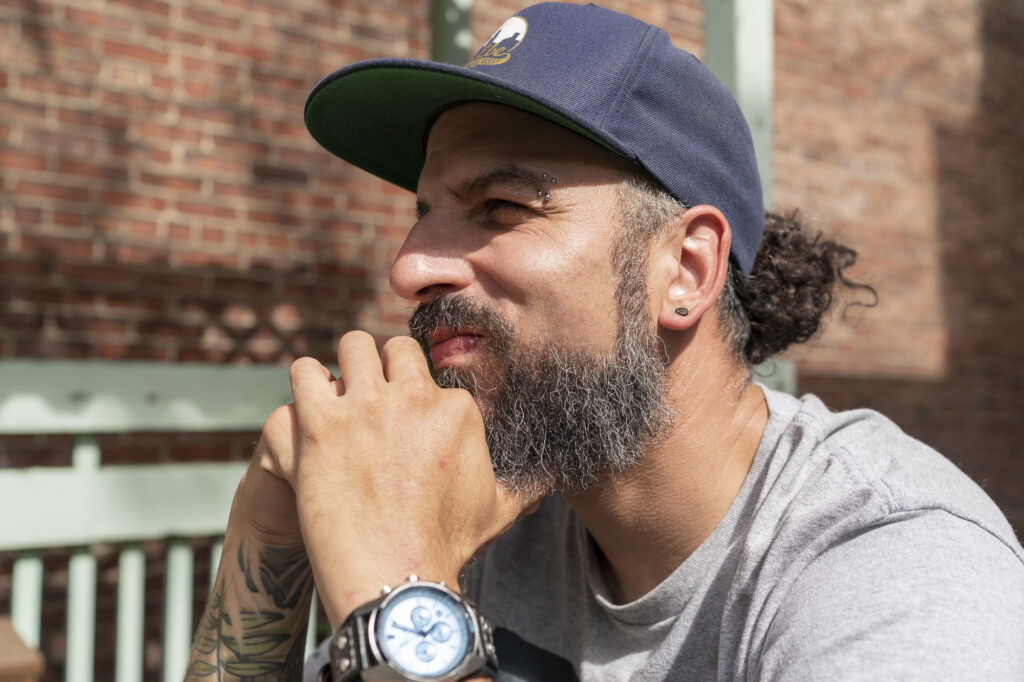
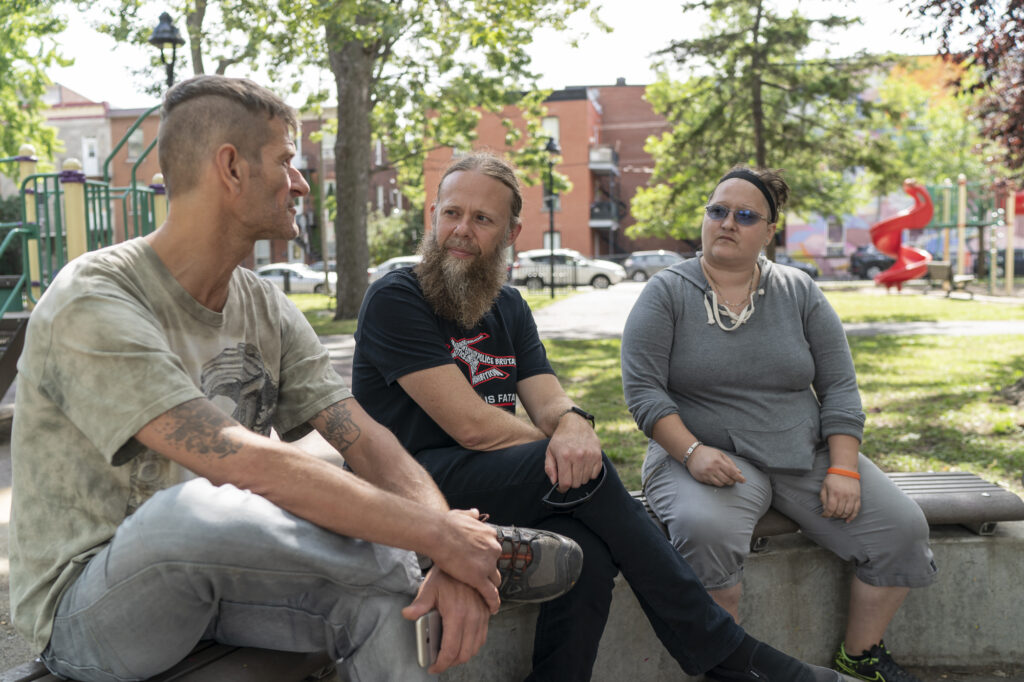
In early 2019, Dopamine launched a small clinic called Dopamed, which was run out of their centre’s basement. Drawing on the organisation’s philosophy of grassroots work within their community, peer navigators Simon and Sophie were hired to work together with the doctors in the clinic. This combination of peer workers and doctors proved highly successful, and after one year, the clinic doubled its weekly operating hours.
Simon’s story
Simon has faced many challenges in his life and is acutely aware of the stigma and barriers faced by people who use drugs, especially when trying to access health care
Engaged as a peer navigator at the Dopamed clinic, Simon’s own experience informs the way he connects with people who access the clinic’s services. He has a bounce in his step and a gentle smile as he makes his way through the clinic, greeting the doctors and chatting with the community members.
Dopamine is deeply connected to the needs of their local community. Observing the need for better health care was what prompted them to reach out to the CSA and learn from their model of patient-centred health care. While the CSA and Dopamine are two distinct services, their model of collaboration to strengthen each other’s work is an example for service providers everywhere.
It’s frustrating because I’m still a human being despite the difficulties I had. What people hold as stereotypes is that this person is a human waste, that this person has never done anything good in his life. People are quickly drawn to these judgments. ‘Ah, he’s a drug addict, he’s worthless, he doesn’t respect anyone.
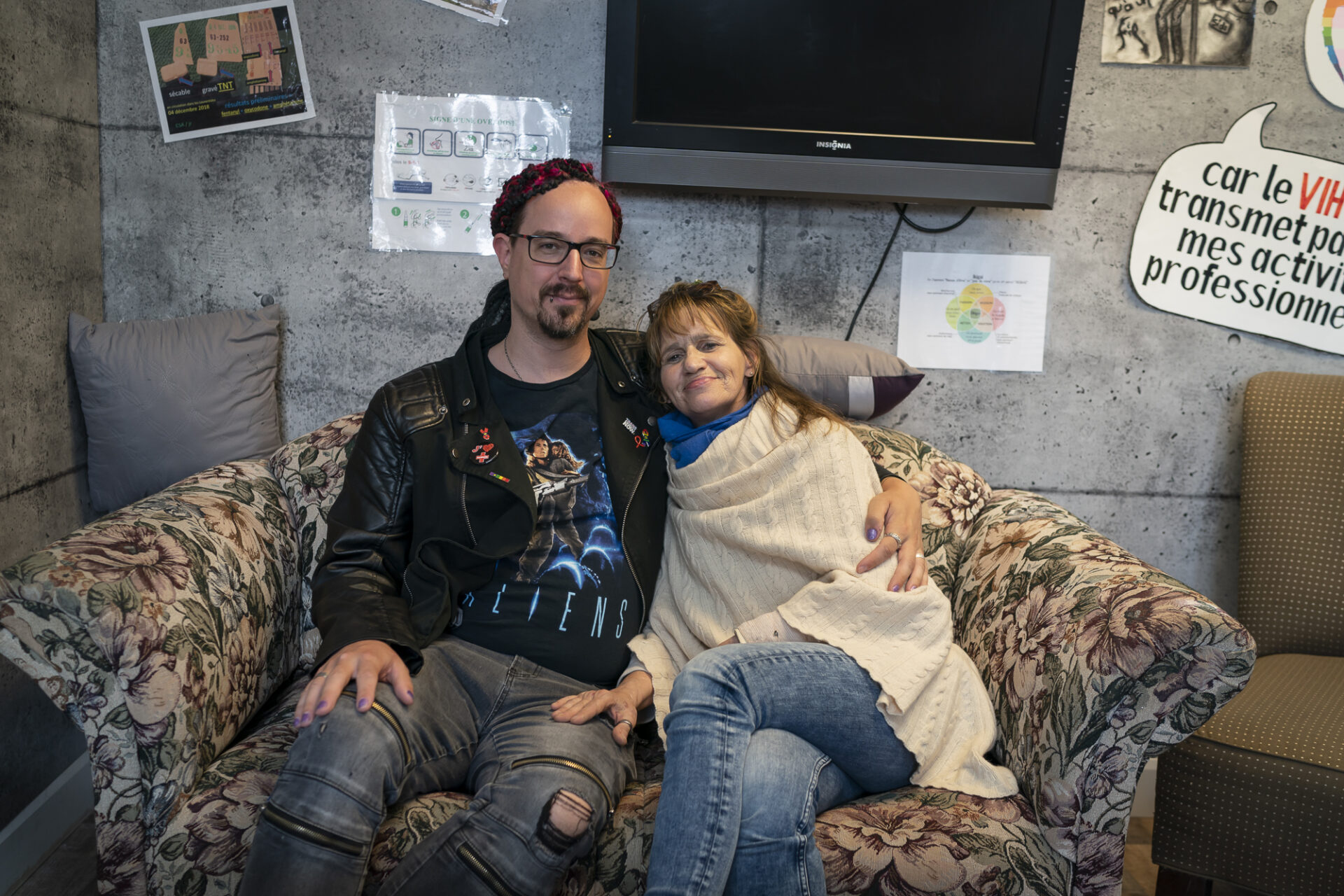
The success of Montreal’s many models
For Dopamine and CSA, key aspects of their models of hepatitis C care include:
- Prioritising the needs of the local community and their reality in the moment
- Emphasising a strong trust-based relationship between health professionals and patients
- Viewing people as a whole and not just their health condition or life challenges
- Bringing health care directly to the people, within a safe space
- Finding creative ways to overcome barriers to health care access
- Investing in strong connections and alliances with other organizations
- Acknowledging the structural drivers of poor health, such as the criminalization of drug use and the poisoned drug supply
- Involving people who use drugs at all stages of service development and delivery
From 2016 until late 2019, Know Your Status has successfully treated 488 people for hepatitis C.
